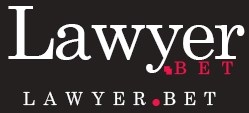Introduction:
A revocable trust is a popular tool in estate planning, enabling individuals to transfer their assets into a trust while living for management by a trustee on behalf of designated beneficiaries. A common query that arises during establishing a revocable trust is centered on property ownership within the trust. This article aims to explore the concept of trust ownership and offer valuable insights into the dynamics of property ownership within a revocable trust.
Understanding Trust Ownership:
Within a revocable trust, the individual creating the trust, referred to as the grantor or settlor, transfers their assets into the trust. The grantor appoints a trustee to oversee the trust assets and identifies beneficiaries who will receive the assets upon the grantor’s passing. It is crucial to note that while the grantor holds legal ownership of the property in the trust during their lifetime, the trustee possesses the legal authority to manage the assets on behalf of the trust beneficiaries.
The ownership of property within a revocable trust can be somewhat intricate. Technically, the trust itself assumes legal ownership of the assets held within it. Consequently, these assets are no longer part of the grantor’s estate and are exempt from probate proceedings upon the grantor’s demise. Instead, the assets are registered under the trust’s name and fall under the trustee’s jurisdiction.
Advantages of Utilizing a Revocable Trust:
There exist numerous benefits associated with incorporating a revocable trust into your estate plan, such as:
- Avoidance of probate: By transferring assets into a revocable trust, individuals can bypass the probate process, which is often time-consuming and expensive.
- Enhanced privacy: Unlike a will, which becomes a public record posthumously, a revocable trust enables discreet management of your estate.
- Flexibility: As implied by its name, a revocable trust can be altered or revoked by the grantor at any point during their lifetime, offering flexibility in asset management.
Expert Advice on Managing Trust Assets:
When it comes to overseeing trust assets, it is essential to bear in mind a few key recommendations:
- Select a dependable trustee: Choosing a trustee who is reliable and capable of adhering to your directives is paramount.
- Maintain meticulous records: Accurate records of all trust transactions and asset management activities is crucial.
- Regularly review and update the trust: Given the potential changes in life circumstances, it is advisable to review and update your trust periodically to ensure alignment with your current intentions.
Conclusion:
In conclusion, comprehending the ownership dynamics of property within a revocable trust is imperative for individuals contemplating the utilization of this estate planning instrument. While the grantor technically retains ownership of the assets during their lifetime, the trust itself assumes legal ownership of the property, with the trustee overseeing asset management on behalf of the beneficiaries. By leveraging a revocable trust, individuals can steer clear of probate, safeguard privacy, and maintain flexibility in asset management. By adhering to expert advice on managing trust assets, individuals can ensure the seamless execution of their estate plans in accordance with their wishes.
Unveiling the Mystery: Who Truly Owns Property in a Revocable Trust
Regarding estate planning, revocable trusts are a popular choice for many individuals who want to ensure their assets are distributed according to their wishes after they pass away. One of the key benefits of a revocable trust is the ability to avoid probate, which can be a time-consuming and expensive process. However, there is often confusion surrounding who actually owns the property in a revocable trust.
In this article, we will delve into the topic of property ownership in a revocable trust, unraveling the mystery to provide you with a clear understanding of how it works and what it means for you and your beneficiaries.
Understanding Revocable Trusts
Before diving into the intricacies of property ownership in a revocable trust, let’s first understand what it is and how it functions. A revocable trust, also known as a living trust, is a legal entity that holds assets on behalf of the trust creator (also known as the grantor or settlor). The grantor can make changes to the trust, including adding or removing assets, changing beneficiaries, and even revoking the trust entirely during their lifetime.
Who Owns Property in a Revocable Trust?
Property ownership in a revocable trust is a concept that can be tricky to grasp. When you transfer assets into a revocable trust, the trust holds legal title to those assets. However, the grantor retains what is known as beneficial ownership of the property. This means that while the property is titled in the name of the trust, the grantor can use and enjoy the assets as if they still owned them outright.
Clarifying Beneficial Ownership
Beneficial ownership in a revocable trust is important to understand, as it determines who ultimately benefits from the assets held in the trust. While the grantor retains beneficial ownership during their lifetime, upon their death, the trust becomes irrevocable, and the beneficiaries named in the trust document become the new owners of the assets. This transfer of ownership occurs outside of probate, allowing for a seamless and efficient distribution of assets to beneficiaries.
Practical Tips for Managing Property in a Revocable Trust
If you have a revocable trust or are considering creating one, here are some practical tips for managing property in the trust:
– Regularly review and update your trust document to ensure it reflects your current wishes and circumstances.
– Keep detailed records of all assets transferred into the trust, including deeds, titles, and financial account statements.
– Consider involving a trustee or successor trustee to manage the trust assets in the event of your incapacity or passing.
– Communicate with your beneficiaries about the existence of the trust and your intentions for the distribution of assets.
Case Study: The Smith Family Trust
To illustrate how property ownership works in a revocable trust, let’s consider the case of the Smith Family Trust. Mr. and Mrs. Smith, a married couple, create a revocable trust and transfer their home, bank accounts, and investments into the trust. As grantors of the trust, they retain beneficial ownership of the assets during their lifetime. Upon their passing, their children become the beneficiaries of the trust and inherit the assets held within it.
Benefits of Owning Property in a Revocable Trust
There are several benefits to owning property in a revocable trust, including:
– Avoiding probate: Assets held in a revocable trust pass to beneficiaries outside of probate, saving time and money.
– Privacy: The terms of a revocable trust remain private, unlike a will that becomes a matter of public record.
– Incapacity planning: A revocable trust can be used to manage assets in the event of the grantor’s incapacity.
In conclusion, understanding property ownership in a revocable trust is essential for anyone considering this estate planning tool. By grasping the concept of beneficial ownership and how it impacts the distribution of assets, you can make informed decisions about how to structure your estate plan for the benefit of yourself and your loved ones. Consider seeking the advice of a qualified estate planning attorney to ensure your revocable trust aligns with your goals and objectives.
Remember, a revocable trust can be a valuable tool in your estate planning arsenal, providing peace of mind and protection for your assets both during your lifetime and after your passing. By staying informed and proactive in managing your trust, you can ensure that your wishes are carried out as intended, leaving a lasting legacy for future generations.




